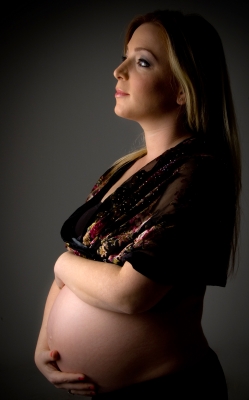There’s no better time than Valentine’s week to discuss reproductive health, right? Accidentally Green’s focus for this week is how toxic chemicals in personal care products can alter the health and reproductive systems of both women and men.
 A 2005 study revealed that almost half of all personal care products include ingredients that can harm reproductive systems or prenatal development. 1 Chemicals that harm babies are as varied as the products where they can be found:
A 2005 study revealed that almost half of all personal care products include ingredients that can harm reproductive systems or prenatal development. 1 Chemicals that harm babies are as varied as the products where they can be found:
- National Geographic reports, “Triclosan, widely used in soaps, toothpastes, and deodorants, has been detected in breast milk, and one recent study found that it interferes with testosterone activity in cells.” 2
- DEA (diethanolamine), a typical ingredient in sunscreens, is a suspected carcinogen that “depletes the body of choline needed for fetal brain development.” 3
- One of the biggest offenders is phthalates. Often hidden as the term “fragrance” on ingredient lists, phthalates are linked to low birth weights 4 and are particularly damaging to male reproductive systems. (Read more about this on Wednesday.)
Even in the womb, an unborn child is particularly affected by his or her mother’s cosmetic usage. In 2004, the cord blood of ten random American newborns was studied by nonprofit research organizations Environmental Working Group and Commonweal. At least 101 chemicals were found in each baby tested, and an average of 200 toxins were found in each child. Out of the 287 different chemicals detected, 217 were toxic to the brain and nervous system. Additionally, 208 of the chemicals caused birth or developmental defects and 180 of the chemicals caused cancer. 5
The startling results prove a lot: it really does matter what personal care products a mother uses. In fact, chemicals and toxins cross the placenta and are passed on from mother to child just as easily as alcohol or cigarette smoke. 6
In his book “Husband-Coached Childbirth,” Dr. Robert A. Bradley writes, “For years we assumed that the placenta acted as a barrier between the baby’s and the mother’s circulation, protecting the baby from chemicals and drugs ingested by or injected into the mother. Dr. Frances Kelsey [of the U.S. Food and Drug Administration] states emphatically the placenta is now known not to be a barrier at all, rather, ‘it is a bloody sieve,’ through which everything the mother takes goes directly to the baby.” 7
While pregnant women are routinely advised against eating tuna during pregnancy or consuming even a drop of alcohol, they are never warned about using cosmetics.
Latest posts by Hilary Kimes Bernstein (see all)
- The Day I Realized Healthy Choices Don’t Guarantee Health - July 21, 2015
- Avoid Synthetic Bug Sprays with All-Natural Repellents - July 16, 2015
- The Day I Learned I Could Cook Real Food - July 13, 2015

Leave a Reply